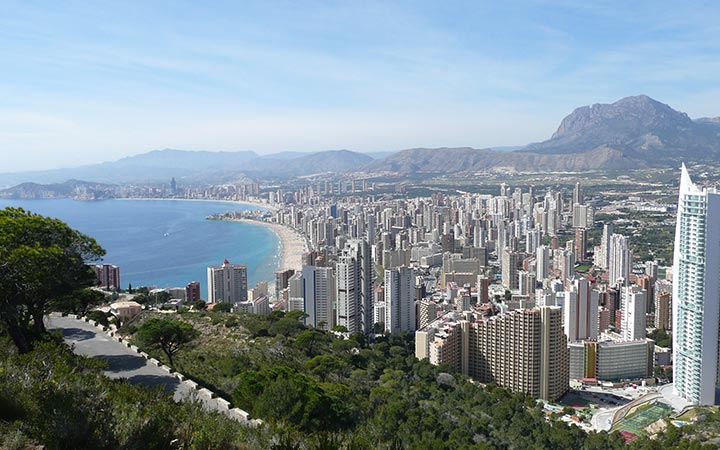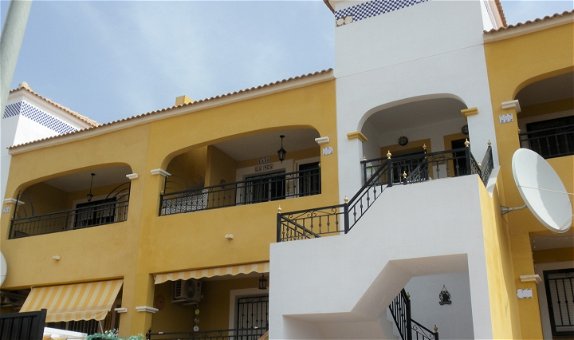A couple have asked what I meant about selling in the second half of the year to avoid CGT. Hope this helps.
Capital Gains Tax is payable when you sell your property in Spain whether you are a resident or a non resident. If a non-resident you will pay a 3% retention tax on selling your property and this will be used to pay any CGT that is due. There is a fixed rate of 19% for non residents from a EU country and 24% from a non EU country. Expenses cannot be claimed to offset against the tax and nor can you claim the exemption if you are using all the profit from the sale on a new property as this is only valid if it is your main home and you cannot claim that if you are non resident.
However, for residents there are several ways to avoid this tax.
Firstly, if you are going to become resident in Spain and have a property in UK to sell, ensure you look at the time of year when you sell your UK property. You will be liable for CGT on your UK property if you sell in the year you become resident.
You cannot be classed as a fiscal resident until you have been in Spain for a period of 6 months or more in any one calendar year which is the same as the tax year in Spain. If you become a resident in Spain in the second half of the year then you will not have to declare the sale of your UK property in that year. But if you become resident in the first half of the year then any UK sale will be liable to CGT.
Example. Become resident in (say) March 2024 then you become a tax resident for 2024 and will have to declare income for the whole of 2024 including the sale of a UK property. This can be quite expensive especially with the UK property prices rising so much. You will complete a tax return in 2025 for all income received in the year 2024.
Article continues below
However, if you become resident in (say) October 2024, you will not be a tax resident for that year (Spain does not do partial year fiscal residency) so any sale of UK property in that year will not need to be declared. You will not become a fiscal (tax paying) resident until the year 2025 when you will have been resident for more than 6 months in one calendar year. You will not have to complete your first tax return until 2026 which will take into account all income received in the year 2025. So If you sell your property in 2024 you will not need to declare it even though you become resident (but not tax resident) in 2024.
Each autonomous region has its own rules on CGT so I will concentrate on the Valencia Region.
If you sell your main home in Spain and use all the profit made to buy another property anywhere in the EEA (but not UK) then you will not be liable to CGT as long as the new property is going to be your main home. If you only use the money you received and some of the profit on the new main home then the percentage you used will decrease the CGT by that amount.
Example. Sell a property for 200,000 and make 50,000 euro profit and then buy a new main home for more than 250,000 euro then you won't pay CGT. However, if your new main home is only 225,000 then you will pay CGT on the surplus 25,000 euro. As a resident, you can claim expenses you have incurred in the sale off that amount. Expenses that can be claimed are ITP (transmission tax) Legal Fees, VAT if a new home, notary and legal fees plus the VAT on those charges. These exemptions are applicable for up to 2 years after selling your original property. but you have had to have lived there for more than 3 years for the original property to be classed as your habitual resident. (Additional note) I have clarified that it is the entire proceeds you must invest in a new home to get the main home exemption and not simply the profit you make on selling.
Article continues below
Now for the oldies amongst us. If you are over 65 and have been living in your main residence for more than 3 years then there is no CGT to pay regardless of if you buy a new property or not.
One point to bring up. A Valencia Court ruling has said that if you update your property value by the CPI (inflation rate) since you bought it, you can use that value instead of the price you paid for it. They ruled that increases in property prices means you can't buy a new one for a similar price. Say you bought 5 years ago at 100,000 euro. The inflation rate in those years has risen by 10% (an example figure) then you can use that and claim the property would have been bought for 110,000 and any profit would be above that figure, not the 100,000 you originally paid. Of course, in some cases the value has come down so you wouldn't want to use that figure but you will have the choice.
(The above paragraph has been sent back for scrutiny by the Valencia Regional government and the inflation ruling is being looked at by the Valencia Supreme Court so don't rely on that until it has been clarified).
There are ways to avoid some of the tax such as "confiscatory taxation". If, for example, the profit you have made comes to around 10,000 and the tax to be paid comes to over 8,000 euro then that is classed as confiscatory so no tax will be due,
As in everything, always consult a solicitor to check on your allowances. Some of them will give the first consultation free if you use them for the sale so always best to check.
Written by








































 Spain Tips and Guides: your complete guide to visiting, living and moving to Spain
Spain Tips and Guides: your complete guide to visiting, living and moving to Spain